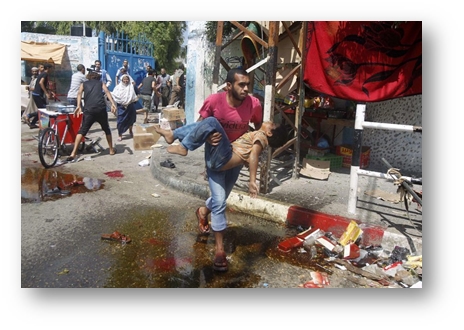02 February 2018
Universal Periodic Review – Third National Report of Israel
On 23 January 2018, the third Universal Periodic Review of Israel was held. The delegation of Israel was headed by Ambassador Aviva Raz Shechter, Permanent Representative of Israel to the United Nations, and Ms. Emi Palmor, Director General of the Ministry of Justice.
Israel’s Ambassador Aviva Raz Shechter presented the third national report of the Universal Periodic Review of Israel on the developments regarding the situation of human rights and fundamental freedoms and implementation of previous recommendations since the beginning of the 2nd UPR cycle in 2013. During its UPR held in October 2013, Israel accepted 57 recommendations. The national report was compiled by the Ministry of Foreign Affairs in collaboration with the Ministry of Justice and all relevant Government Ministries. It was outlined that it also drew on discussions on State reports that are submitted to UN Human Rights Committees taking place in a forum attended by state authorities, scholars and representatives of civil society. It was stated that Israel had also inaugurated “Round Tables” in 2017 to provide a platform for the exchange between civil society, academics and government representatives on core human rights issues to allow for the participation of grass roots organizations in the UN HR reporting mechanism.
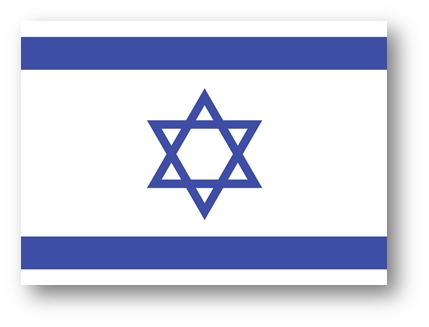
Presentation of the National Report
In her opening remarks, Ms. Schechter accused the UN Human Rights Council of issuing “biased resolutions” against Israel and went on to warn against Member States taking advantage of the session to advance their political agendas against Israel.
“The continuous discrimination against Israel in the HRC and the unparalleled number of one-sided biased and political resolutions adopted regularly by the automatic majority of its members testify not only to the unfair treatment of Israel but also to the deficiencies of the council itself and its agenda”.
The Ambassador noted that Israel would submit to the review process despite the alleged bias, and demanded its end.
“Today, more and more countries are joining Israel in realising that this theatre of the absurd cannot go on forever and that reform is necessary”, she stated.
Yet, the delegation went on to express its “strong commitment” to UN human rights mechanisms. It delineated that its Basic Laws preserve fundamental human rights for all and that the State is fully committed to achieving equality and leaving no one behind – in spite of its “unique security situation, regional instability and incitement against its right to exist”.
Outlining developments in the area of human rights and fundamental freedoms since the previous review, Shechter mentioned new initiatives and measures taken by Israel to uphold the rights of people with disabilities, minorities, the LGBT community and women. What was conspicuously missing, however, was any reference to the situation of Palestinians in the occupied territories. The Ambassador simply underlined that Israel is “concerned about Gaza as much as others – or probably more”.
|
|
Concluding her speech, the Ambassador called for a constructive approach to the review session. Ms. Emi Palmor, Director General of the Ministry of Justice, introduced her talk by warning of the presence of Member States that are present “to automatically denounce everything that I say”. She appealed to the delegations to “prove that you really care about human rights”. Recounting her childhood, she underlined that her family flew to a place where human rights are preserved. In this context, Ms. Palmor emphasized the “responsibility as Jewish and democratic state to preserve human rights of minorities”.
She highlighted improvements in the judiciary, inter alia, the introduction of some prisoners’ rights, safeguards for juvenile detainees, and investigations of complaints against the Israel Security Agency. She argued that Israel had made progress with regards to the detention of minors by creating a committed juvenile court, allowing for the notification of families, and enabling the authorization of courts to appoint attorneys for the minors “if they wished so”.
Ms. Palmor also outlined that Israel had established a team against racism and discrimination against the Ethiopian minority and had inaugurated a new governmental unit of the ministry of justice for the coordination for the fight against racism. After having vowed that Israel is fully committed to freedom of expression and assembly, the Israeli Minister of Justice lashed out at “certain” NGOs that allegedly spread reports based on unreliable, distorted information:
“While we hold Civil Society in great esteem, we would also say a word of caution. We oftentimes see reports that are based on unreliable and distorted information that is disseminated by certain NGOs.”
The delegate’s verbal attack on civil society organizations was reflective of the sharpening legal, criminal, and “security” restrictions under which they have to operate. The period under review has seen an escalation of restrictions, criminalization, and violence targeting civil society organizations critical of Israel’s illegal occupation and associated abuses. The objectives the referenced organizations pursue, notably an end to Israel’s blatant violations of Palestinians’ inalienable rights, do not coincide with the Israeli State-defined “public interest”. For offering invaluable analysis and advocacy for human rights and for protesting and opposing illegal and inhumane actions by the Israeli State, Palestinian and Israeli civil society activists face repeated violations of their protected fundamental freedoms.
Compilation of the Office of the UN High Commissioner for Human Rights
Such compilation draws on reports of treaty bodies and special procedures and other relevant UN documents.
Scope of international obligations and cooperation with international human rights mechanisms and bodies
A number of treaty bodies, special procedure mandate holders and UN entities recommended that Israel ratify:
|
• The International Convention on the Protection of the Rights of All Migrant Workers and Members of Their Families; • The International Convention for the Protection of All Persons from Enforced Disappearance; • The Rome Statute of the International Criminal Court; • Seven optional protocols to human rights conventions to which it was a party, including the Optional Protocol to the Convention against Torture and Other Cruel, Inhuman or Degrading Treatment or Punishment. |
The Special Rapporteur (SR) on violence against women recommended that Israel urgently remove its reservations to articles 16 and 7 (b) of the Convention on the Elimination of All Forms of Discrimination against Women. The Secretary-General (SG) affirmed the applicability of Israel’s human rights obligations in the Occupied Palestinian Territory (OPT), as continuously reasserted in UN resolutions, by the SG and the UN High Commissioner for Human Rights, as well as by various human rights treaty bodies. He also noted that the International Court of Justice had observed in 2004 that, because Israel exercised territorial jurisdiction over the OPT, it was bound by human rights obligations in respect of the local population, and that its obligations of under the ICESCR included “an obligation not to raise any obstacle to the exercise of such rights in those fields where competence has been transferred to Palestinian authorities”.
The SR on violence against women recommended that Israel issue a standing invitation to the special procedures of the HRC. The SR on the situation of human rights in the Palestinian territories occupied since 1967 expressed serious concern at the continued pattern of non-cooperation with the mandate. The international commission of inquiry – created in 2014 to investigate violations of IHL and IHRL in the OPT in the context of the military operations conducted before, during or after 13 June 2014 – regretted that Israel had not responded to its repeated requests for cooperation.
It also indicated that the persistent lack of implementation of recommendations made by previous commissions of inquiry, treaty bodies, special procedures and other UN bodies were at the heart of the recurrence of violations in Israel and the OPT. Israel contributed financially to the OHCHR in 2013, including to the UN Voluntary Trust Fund on Contemporary Forms of Slavery.
National human rights framework
The Human Rights Committee and the SR on violence against women recommended that Israel amend its Basic Law to incorporate explicitly the principle of equality and non-discrimination, and the principle of gender equality and non-discrimination in the public and private spheres, respectively. The Committee against Torture (CAT) reiterated that Israel should establish an independent national institution in full compliance with the Paris Principles.
OHCHR assessment of the implementation of the recommendations and the international human rights obligations
Equality and non-discrimination: The Human Rights Committee was concerned that the Jewish and non-Jewish population were treated differently in several regards and that Israel maintained a three-tiered system of laws affording different civil status, rights and legal protection for Jewish Israeli citizens, Palestinian citizens of Israel and Palestinian residents of East Jerusalem. The SR on the OPT noted that Palestinians living in East Jerusalem in 1967 had been given permanent residency status, which could be revoked on a number of grounds.
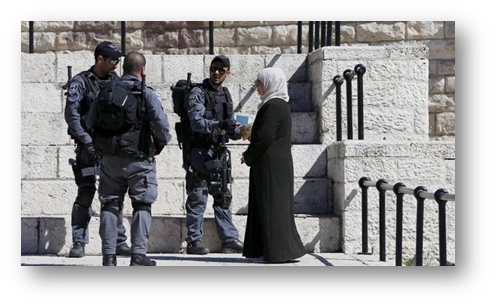
| 14,000 Palestinians have lost their permanent residency status since 1967. |
The Human Rights Committee and the SG noted that the application of two different legal systems in the same territory on the sole basis of nationality or origin was inherently discriminatory and that Israel should ensure the equal treatment for all persons within its territory and subject to its jurisdiction, regardless of their national or ethnic origin.
Development, the environment, and business and human rights: The SR on the OPT noted that the industrial, agricultural and natural resource sectors in the OPT were shrinking steadily in economic significance and employment size, owing to, inter alia, Israeli restrictions on market access; and the significant loss of arable land. The SG asserted that the production of and trade in settlement goods raised concerns about the human rights impact on Palestinians caused and exacerbated by business enterprises, and highlighted the obligation of Israel to protect individuals and communities from adverse human rights impacts by third parties, such as business enterprises, operating in territory under its effective control.
Human rights and counter-terrorism: The SG noted that the 2016 Counter-Terrorism Law had expanded the definition of a “terrorist entity” and of “support to a terrorist entity” and contained broad and ambiguous language concerning “incitement”; it also entailed permanent provisions that were in conflict with fair trial and due process standards.
Civil and political rights
Right to life, liberty and security of person: The SG noted that, during the escalation of hostilities in Gaza in 2014, civilians and civilian infrastructure had been subjected to excessive and disproportionate use of force. The independent commission of inquiry on the 2014 Gaza conflict stated that questions had arisen regarding the IDF’s adherence to the legal principles of distinction, proportionality and precaution during attacks. OHCHR referred to reported excessive use of force and unlawful killings, including extrajudicial executions, by Israeli forces in the context of demonstrations, clashes and in response to alleged attacks by Palestinians.
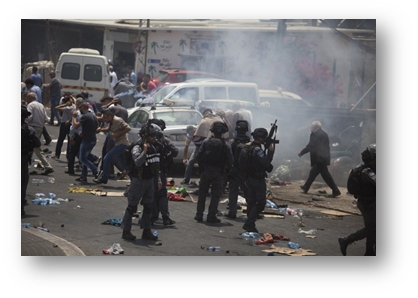 OHCHR also noted instances where Israeli forces had delayed or blocked the provision of medical assistance to wounded suspects. CAT indicated that Israel must make further efforts to effectively prevent and sanction incidents of excessive force. OHCHR noted that Israeli law still did not include any specific prohibition, definition or criminalization of torture. CAT called upon Israel to speed up the incorporation of torture as separate offence in its legislation and ensure that the definition of torture was in full conformity with the Convention. The High Commissioner and his office noted that thousands of Palestinians continued to be held in Israeli prisons outside the OPT, in violation of the Fourth Geneva Convention. It also raised concerns over continuing allegations of torture and ill-treatment of Palestinian detainees, noting that no complaint had led to a criminal investigation.
OHCHR also noted instances where Israeli forces had delayed or blocked the provision of medical assistance to wounded suspects. CAT indicated that Israel must make further efforts to effectively prevent and sanction incidents of excessive force. OHCHR noted that Israeli law still did not include any specific prohibition, definition or criminalization of torture. CAT called upon Israel to speed up the incorporation of torture as separate offence in its legislation and ensure that the definition of torture was in full conformity with the Convention. The High Commissioner and his office noted that thousands of Palestinians continued to be held in Israeli prisons outside the OPT, in violation of the Fourth Geneva Convention. It also raised concerns over continuing allegations of torture and ill-treatment of Palestinian detainees, noting that no complaint had led to a criminal investigation.
CAT and OHCHR expressed concern that the necessity defence contained in the Penal Law was still commonly invoked to prevent criminal investigations and served as possible justification for torture. CAT recommended that Israel urgently cease the practice of administrative detention and ensure that all persons in administrative detention were afforded all basic legal safeguards. CAT indicated Israel should ensure that solitary confinement and equivalent measures were used only in exceptional circumstances and as a measure of last resort, and put an immediate end to and prohibit the use of such measures for juveniles and persons with psychosocial disabilities.
With the High Commissioner and the OHCHR criticizing related practices, CAT recommended that Israel take the measures necessary to ensure that detainees engaging in hunger strikes were not subjected to feeding or other medical treatment against their will, as such practices might amount to torture or ill-treatment. 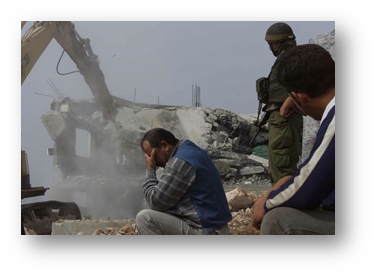 OHCHR indicated that practices of collective punishment had significantly increased in the OPT in recent years. Israel had resumed the practice of withholding bodies of killed Palestinian attackers and alleged attackers. OHCHR highlighted that the unlawful closures and blockade of Gaza, which amounted to collective punishment, also continued to undermine the human rights of the residents. CAT also recommended that Israel put an end to the policy of punitive house demolitions.
OHCHR indicated that practices of collective punishment had significantly increased in the OPT in recent years. Israel had resumed the practice of withholding bodies of killed Palestinian attackers and alleged attackers. OHCHR highlighted that the unlawful closures and blockade of Gaza, which amounted to collective punishment, also continued to undermine the human rights of the residents. CAT also recommended that Israel put an end to the policy of punitive house demolitions.
Administration of justice, including impunity, and the rule of law: The Special Committee to Investigate Israeli Practices Affecting the Human Rights of the Palestinian People and Other Arabs of the Occupied Territories (Special Committee) noted grave concerns regarding possibility for redress from the existing Israeli justice system, civil or military.
The Working Group on Arbitrary Detention reiterated that civilians should never be tried by military courts. The High Commissioner noted the enduring climate of impunity for Israeli law enforcement personnel and a general lack of accountability. OHCHR indicated that few incidents of killings of civilians by the IDF had led to a criminal investigation. The SG was concerned that one of the elements driving impunity was that policies regulating the use of force were not aligned with international human rights law and standards. The SG and OHCHR reiterated concerns regarding the failure of Israel to enforce the law against violent settlers. OHCHR and the SG noted that, nearly three years since the escalation of hostilities in Gaza, serious concerns persisted concerning the lack of accountability regarding alleged violations of IHL IHRL.
Fundamental freedoms and the right to participate in public and political life: OHCHR expressed concern over limitations on access to religious sites, including Al-Aqsa Mosque. UNESCO recommended that Israel decriminalize defamation and place it within the civil code in accordance with international standards.
The SR on the situation of human rights defenders (HRDs) expressed serious concern at continued allegations that HRDs were being subjected to physical attacks, harassment, arrest, detention and death threats, particularly in the OPT, and urged the Government to ensure a protective environment where human rights defenders could work without unlawful restrictions and fear of retaliatory acts. The SR on the OPT recommended that Israel end the use of criminal, legal and security tools to obstruct the legitimate work of HRDs.
Two special procedure mandate holders expressed concern about legislation debated or enacted that specifically targeted Israeli HRDs. The SR on the OPT noted that, in March 2017, the Knesset had enacted 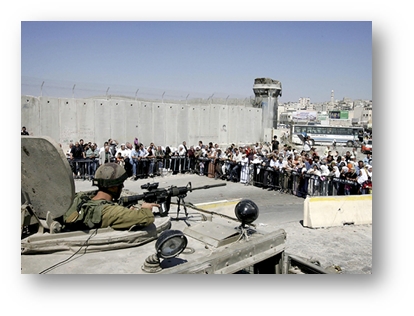 legislation that would deny an entry visa or residency permit to any non-citizen if that person had worked for an organization that had issued a public call to boycott the State of Israel or had agreed to participate in such a boycott.
legislation that would deny an entry visa or residency permit to any non-citizen if that person had worked for an organization that had issued a public call to boycott the State of Israel or had agreed to participate in such a boycott.
The SG and OHCHR noted the severe restrictions on Palestinians’ freedom of movement and their serious implications on fundamental human rights. The Human Rights Committee recommended that Israel lift its blockade of the Gaza Strip and provide unrestricted access for the provision of urgent humanitarian assistance and materials needed for civilian reconstruction efforts.
Prohibition of all forms of slavery: The CRC recommended the explicit criminalization of forced labour of children as a form of sale of children. The SR on violence against women noted a gap in protection and a lack of an adequate screening mechanism for the identification of victims of trafficking.
Right to privacy and family life: In line with observations made by the Working Group on the issue of discrimination against women in law and in practice, the SR on violence against women recommended that Israel harmonize its religious laws governing marriage and divorce with the provisions of the CEDAW, and eliminate discriminatory provisions.
Economic, social and cultural rights
Right to social security: UNHCR indicated the lack of welfare services and benefits for asylum seekers. OHCHR noted that, in 2015, the Knesset had passed a temporary order allowing for revocation of national insurance entitlements for children convicted of “security-related” offences, including stone-throwing.
Right to an adequate standard of living: The Human Rights Committee expressed concern, inter alia, about the confiscation and expropriation of Palestinian land and continuing restrictions on access to natural resources, noting that this undermined the enjoyment of Palestinians of a wide range of their rights under the ICCPR, including the right to self-determination.
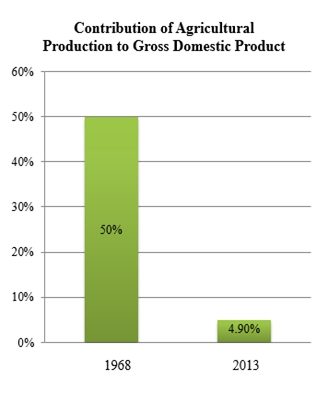 The SG criticized the discriminatory Israeli zoning and planning policy in the West Bank, including in East Jerusalem, which favors settlement interests and prevents Palestinians from obtaining building permits. Demolitions and other pressures create a coercive environment, putting Palestinians at risk of forcible transfer. The SG and the Human Rights Committee called upon Israel to cease discriminatory and unlawful planning policies, laws and practices and to refrain from implementing evictions and demolition orders. The SG and the UNCTAD noted the detrimental impact of Israeli policies on Palestinian agricultural production and access to water resources.
The SG criticized the discriminatory Israeli zoning and planning policy in the West Bank, including in East Jerusalem, which favors settlement interests and prevents Palestinians from obtaining building permits. Demolitions and other pressures create a coercive environment, putting Palestinians at risk of forcible transfer. The SG and the Human Rights Committee called upon Israel to cease discriminatory and unlawful planning policies, laws and practices and to refrain from implementing evictions and demolition orders. The SG and the UNCTAD noted the detrimental impact of Israeli policies on Palestinian agricultural production and access to water resources.
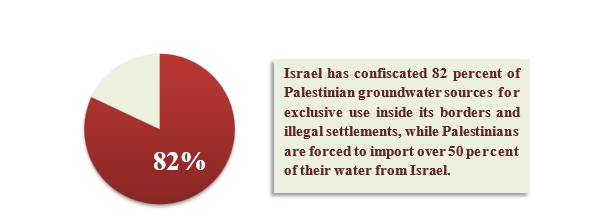
Several special procedure mandate holders criticized the reduction of electricity supply to Gaza, which exacerbates the already dire humanitarian crisis.
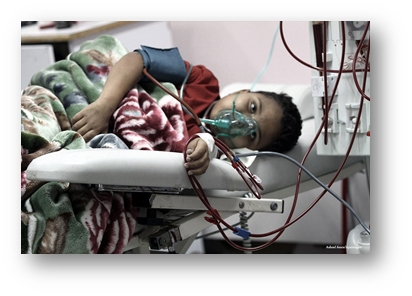
Right to health: UNHCR noted that asylum seekers had limited access to health insurance. OHCHR noted that the closure and restrictions imposed on Gaza had adverse effects on the right to health, due to chronic shortages of drugs and the lack of adequate medical care, as well as due to denial of permits.
Right to education: UNESCO noted that no specific legal or policy action had been taken to ensure equal access to education. The SR on the OPT noted the discriminatory allocation of funding of schools in East Jerusalem, as compared to those in West Jerusalem.
Rights of specific persons or groups
Women: The SR on violence against women indicated that patriarchal attitudes and gender stereotypes were deeply entrenched in society, and recommended that Israel put in place a comprehensive strategy to counteract them. She also noted the frequent occurrence of sexual violence, including rape, and that sexual harassment. The SR recommended that Israel address underreporting and lack of investigation of cases of violence against women owing to social pressure and lack of trust in the police, that it ensure effective access to justice for all victims of gender-based violence under its jurisdiction or its effective control, and that it address the protection gap related to the absence of services for women and girls at risk of domestic violence within Arab communities.
Children: UNICEF noted high rates of inequality of children in Israel. CRC recommended that Israel ensure the mandatory application of special protection measures in criminal proceedings to all child victims and witnesses up to the age of 18. The SG stated that the Israeli military law applicable in the West Bank that permitted the detention of Palestinian children from the age of 12 was at odds with the specific protection granted to children as members of a vulnerable group. OHCHR indicated that, in October 2015, the practice of holding children in administrative detention had resumed and had led to a significant increase in the detention of children.
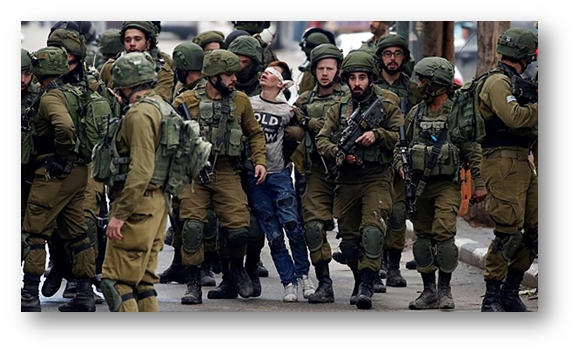
|
As of December 2017, approximately 350 Palestinian children were in detention in Israeli prisons and detention centers. |
OHCHR took note of other steps to penalize children in East Jerusalem, notably through increasing the maximum sentence for stone-throwing. The Human Rights Committee noted a lack of reform in the administration of juvenile military justice, including the increase in the age of majority in the military courts from 16 to 18 years and the adoption of a number of military orders providing safeguards for children, highlighting that Palestinian children were still exposed to arbitrary arrest and detention and were often denied full procedural rights.
Minorities and indigenous peoples: The Human Rights Committee was concerned that, despite the steps taken, Israeli citizens of Arab origin continued to be underrepresented in the civil service, in particular in decision-making positions. The Committee was concerned at demolitions, forced evictions and displacement of Bedouin citizens of Israel living in the Negev desert and at the restricted access of Bedouins living in unrecognized and recently recognized villages in the Negev to basic services.
|
According to the OHCHR, 1,596 Palestinians, predominantly vulnerable Palestinian Bedouin and herding communities, had been forcibly evicted in 2016. |
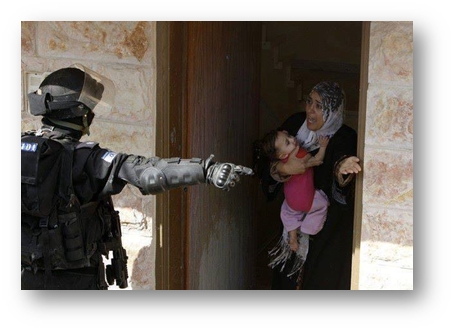
Migrants, refugees and asylum seekers: CRC was concerned at the lack of birth certificates in particular for migrant, asylum-seeking and refugee children and recommended that Israel urgently take measures to ensure that all children within its territory had access to birth certificates. Whilst expressing appreciation that the scope of the Anti-Infiltration Law was less restrictive, UNHCR noted that it provided for the automatic detention of persons considered as “infiltrators”, without an individual assessment of the necessity to detain. It recommended that Israel amend the Law.
UNHCR noted that Israel did not provide information regarding the asylum proceedings to persons who might be in need of international protection. It recommended that Israel simplify the asylum procedure, provide linguistic and legal assistance throughout all stages of the asylum procedure and develop alternative processing structures, such as prima facie recognition, for categories of asylum seekers that were likely at risk.
Stateless persons: UNHCR recommended that Israel amend the 2012 Procedure for Dealing with a Foreign Subject Claiming to be Stateless in order to determine the status and provide protection to stateless persons in line with the Convention relating to the Status of Stateless Persons.
Specific regions or territories: OHCHR and the SG stated that settlement expansion continued unabated, as did the retroactive legalization of settlement outposts. The SR on the OPT noted that the Knesset had passed legislation legalizing the confiscation of private Palestinian land and recommended Israel to rescind the law.
The Security Council condemned all measures aimed at altering the demographic composition, character and status of the Palestinian Territory occupied since 1967, including East Jerusalem, including, inter alia, the construction and expansion of settlements, transfer of Israeli settlers, confiscation of land, demolition of homes and displacement of Palestinian civilians. The HRC called upon Israel to accept the de jure applicability of the Fourth Geneva Convention to the OPT and to the occupied Syrian Golan.
Interactive dialogue during the 28th Session of the UPR
During the presentation of the third national report of Israel, Ms. Emi Palmor, Director General of the Ministry of Justice, presented the improvements achieved by the country in the implementation of the recommendations accepted after the 2013 UPR session, while civil society representatives contributed to the discussion with personal stories.
Interventions followed during which 78 delegations, after welcoming the delegation of Israel and commenting on the implementation of previous UPR recommendations and assessing the overall human rights situation, made a number of recommendations. These particularly pertained to the denial of Palestinians’ inalienable rights, prohibition of non-discrimination, the juvenile justice system, arbitrary detention and ill-treatment, freedom of expression and peaceful assembly, and the situation of human rights defenders. Member States recommended Israel’s ratification of the following Conventions and Protocols:
|
• The International Convention on the Protection of the Rights of All Migrant Workers and Members of Their Families; • The International Convention for the Protection of All Persons from Enforced Disappearance; • The Optional Protocol to the International Covenant on Civil and Political Rights; • The Optional Protocol to the International Covenant on Economic, Social and Cultural Rights; • The Optional Protocol to the Convention against Torture and Other Cruel, Inhuman or Degrading Treatment or Punishment; • The seven optional protocols to the Conventions to which is a party; • The Rome Statute of the International Criminal Court ; • The Additional Protocols I and II to the Geneva Conventions of 12 August 1949. |
Several UN Member States criticized Israel for failing to abide by its international human rights obligations and UN resolutions, particularly by rejecting the applicability of the Geneva Convention relative to the Protection of Civilian Persons in Time of War to the OPT. Specifically, some delegates outlined that the Fourth Geneva Convention explicitly prohibits individual or mass forcible transfers and deportations of protected persons from occupied territory. Numerous Member States appealed to Israel to finally end its 50-year-long occupation to grant Palestinians their inalienable rights, including the right to self-determination. The South African delegation delineated that “Israel is the only state in the world that can be called an apartheid state” and stated that the country remains “deeply concerned at the denial of the right of self-determination to the Palestinian people, in the absence of which no other human right can be exercised or enjoyed”.
A number of UN Member States expressed concern over Israel’s violation of UN resolutions and the reportedly deteriorating human rights situation in the OPT. “We call upon Israel to comply with international laws by immediately ending its 50-year colonial occupation and apartheid policies against the Palestinian people and dismantle the illegal wall and the related infrastructures located inside the OPT and compensate Palestinians for all of the losses incurred due to their presence”, the Palestinian delegation asserted, pronouncing that Palestinians “will not be discouraged”.
Most Member States called on Israel to end the occupation and annexation of Palestinian land, the construction and expansion of Israeli settlements, the demolition of Palestinian homes and structures, and the forcible transfer of Palestinians. Switzerland, Venezuela, Bahrain, Malaysia, Qatar and others asked Israel to end to the blockade of the Gaza Strip. Other delegations called upon Israel to allow international human rights bodies to conduct fact-finding missions to investigate allegations of war crimes and crimes against humanity.
Numerous Member States, including UK, Finland and Austria, criticized Israel’s continuation of arbitrary detention of children. Some also referred to lack of fair trial and due process as well as reported ill-treatment in Israeli detention facilities and called on Israel to reform the juvenile justice system by adhering to international standards.
A number of delegations criticized that Israel’s illegal policies and practices of settlement expansion, seizure of land, revocation of residency, and discriminatory planning continue unabated, depriving Palestinians of fundamental rights.
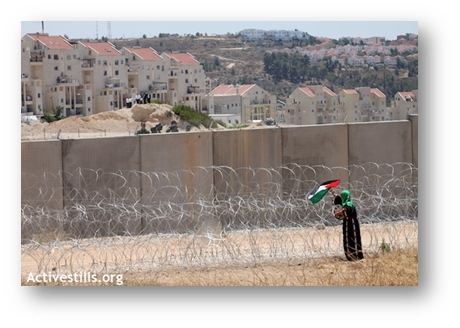
Some delegations noted that discrimination against minority populations and especially against Palestinians continues inside Israel, infringing on, inter alia, the right to work, to education, healthcare, access to justice, and property. In this regard, delegations recommended to Israel to adhere to the fundamental principle of non-discrimination and apply its human rights obligations to all people under its effective control.
A few Member States commended the progress made with regards to gender equality, LGBTI rights, and the rights of people with disabilities. Whereas the Israeli delegation elaborated on the alleged improvements made with regards to the human rights situation of these populations as well as other minority groups inside Israel, the numerous recommendations pertaining to the situation of Palestinians were fully neglected. The only time “Palestinians” were mentioned at all by the Israeli delegation was when commitment to a peaceful solution was reiterated – a “commitment” that is difficult to detect given the illegal settler-colonial and annexationist policies and military activities referred to by UN Member States.
When the delegations of Belgium, Bolivia, Canada, Madagascar and other countries expressed concern over the targeting of human-rights defenders and civil society organizations in the context of Israel’s NGO Transparency Law and Anti-Boycott Law, and recommended to Israel to allow for their legitimate work, Palmor vehemently rejected such allegations, claiming that Israel imposes no restrictions on human rights associations.
In its final remarks in response to recommendations by Spain, Switzerland, Argentina, Belgium, Denmark, and Greece – which had expressed concern about the shrinking space for Palestinian and Israeli human rights defenders and had advised Israel to take all necessary measures to ensure they can carry out their legitimate work in a safe environment and without threats and harassment – the delegation of Israel inquired: “What do you mean when you say human rights defenders?” Apparently, Palestinians’ rights are hardly considered “human” rights by the State under review.
Paradoxically, the Israeli representative then claimed that those working on human rights face no restrictions and reiterated that Israel has a very active civil society, emphasizing that the present representatives of the delegation had shared ample evidence of the successes of NGOs in Israel. None of these, however, had made the slightest reference to the Palestinian population.
Those civil society actors defending human rights for all continue to experience “sophisticated interference with their vital work, and [face] toxic denunciations aimed at silencing them and discouraging their supporters” (A/HRC/34/70). They are persecuted by Israel as “enemies of the State” for their peaceful exercise of their rights to freedom of expression and assembly and face attacks, arrests, detention, and threats to their lives and safety.
Israel’s criminalization of legitimate and peaceful political expression and assembly of those actors that dare to stand up for equal human rights and democratic rights for all undermines claims of Israel representing a vibrant democracy, entrenches oppression, and places in jeopardy the enjoyment of human rights for everyone in the region.
The Israeli Ambassador deplored that UN representatives would use the UPR as platform to politicize the human rights discourse: “It is a cynical and hypocritical attitude meant to distort the reality”, she outlined. In concluding, the delegation stated that Israel would continue its cooperation with the HRC and take “seriously” the recommendations made by Member States. How seriously this UPR cycle’s recommendations will be taken remains to be seen. After seven decades of non-compliance with international law and UN resolutions and recommendations, the “theatre of the absurd” should indeed finally come to an end – one that finally realizes Palestinians’ inalienable rights and gives way to just peace in the region.
Adoption of the Draft Report of the Working Group on the Universal Periodic Review
On Thursday, 25 January 2018, the Working Group on the Universal Periodic Review adopted the Report on Israel. The delegation of Israel will examine the 232 recommendations and will provide its responses no later than the thirty-eighth session of the Human Rights Council in June 2018.
Links to GICJ reports on the UPR reviews of:




